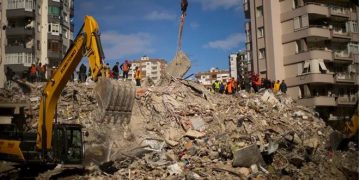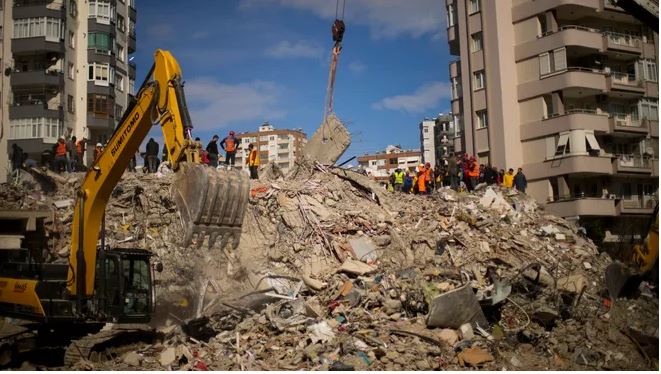By John Ikani
The aftermath of the devastating earthquake that hit southern Turkey and Syria has taken a catastrophic turn with rescue efforts hampered by deteriorating security situation.
The magnitude 7.8 tremor struck overnight near the city of Gaziantep, and was felt nearly 1,000km away in Cairo, leaving a huge trail of destruction in Turkey and Syria, where many remained trapped below rubble as a second 7.5 magnitude earthquake then hit just hours later on Sunday.
As the death toll continues to rise, surpassing 25,000, international groups have faced challenges in their search operations.
German rescue workers and the Austrian army have been forced to pause their efforts due to clashes and incidents of looting.
In response to the lawlessness, Turkey’s President Recep Tayyip Erdogan has declared a state of emergency and warned that anyone caught breaking the law will face consequences.
Despite these efforts, the danger to rescue workers on the ground remains high, with Lieutenant Colonel Pierre Kugelweis of the Austrian Armed Forces stating that “the chances of saving a life bears no reasonable relation to the safety risk.”
However, in the face of this tragedy, there have been glimmers of hope and unity.
The border between Armenia and Turkey, which has been closed for 35 years, has reopened to allow for aid to flow through.
Also, reports have emerged that the Syrian government has agreed to let UN aid into areas controlled by opposition groups, setting aside regional politics in the face of this disaster.
It is worthwhile to note that Turkey is in one of the world’s most active earthquake zones. Monday’s 7.8 magnitude earthquake is the most powerful to hit the country since 1999.
In August 1999, a powerful magnitude 7.6 earthquake shook Marmara, a densely populated region to the south of Istanbul, Turkey’s largest city, for 45 seconds. Within days, the official death toll stood at 17,500.


































